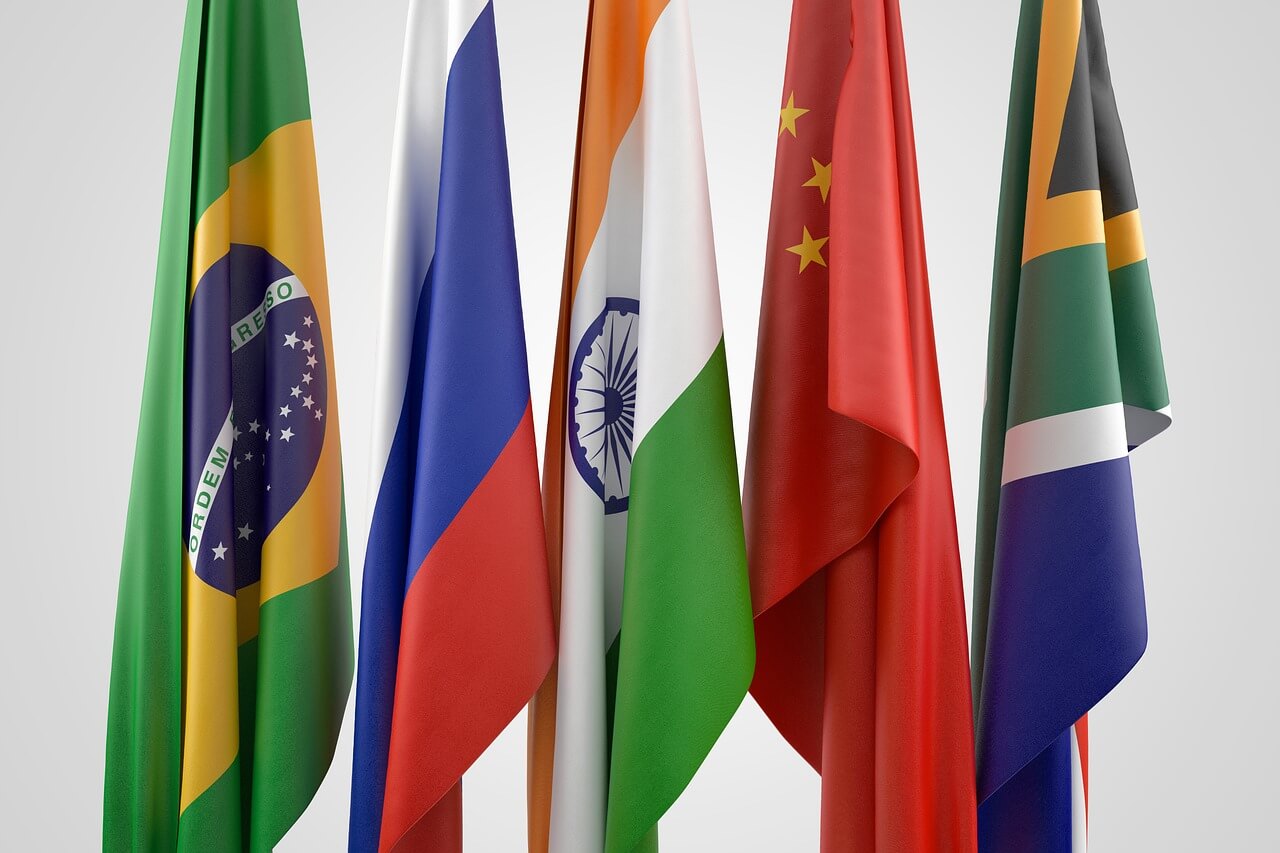Is BRICS Becoming the Next Superpower?
The impact of BRICS can be better evaluated in terms of the level of political coherence among them and the degree of influence on the global financial and political system. Central to its success is the potential to wear away at Western hegemonic claims by safeguarding the principle the group deem to be most threatened – the political sovereignty of states. BRICS are a union of severing state defenders, whose influence is beginning to be felt.
BRICS has become a shorthand for the growth of the emerging markets in the international economy. Collectively, the BRICS economies (Brazil, Russia, India, China and South Africa) could surpass that of Group 7 nations if China becomes the largest economy in the world before 2030.
What Factors Contributed to the Growth of BRICS Superpower?
The growth of the BRICS group can be attributed to several key factors, including:
Economic Potential
The economic potential of the BRICS countries stems from their substantial share of global GDP and their rapid economic growth rates. These countries have demonstrated resilience and dynamism, often outpacing the growth rates of more established economies.
Their diverse economic structures, ranging from China's manufacturing prowess, to India's services sector, have allowed them to tap into various aspects of the global economy.
For instance, China's manufacturing capabilities have made it the world's factory, producing a wide range of goods at competitive prices. India's IT and software services have positioned it as a global technology hub. This economic diversity has allowed BRICS countries to participate in multiple sectors, mitigating risks associated with dependence on a single industry.
Natural Resources
Abundant natural resources, ranging from oil and minerals to agricultural products, have significantly contributed to the economic growth of several BRICS countries. Russia is known for its vast energy reserves, which have not only fueled its domestic growth but also served as a significant export commodity. Brazil's agricultural prowess has made it a major exporter of food products.
These resources have not only generated revenue but also facilitated the development of related industries and infrastructures, such as energy production and mining.
However, heavy reliance on resource exports also exposes these countries to commodity price fluctuations and environmental challenges.
Infrastructure Development
The BRICS nations have invested heavily in infrastructure development, which has played a pivotal role in fostering economic growth. Improved transportation networks, communication systems, and energy facilities have lowered transaction costs, boosted trade, and facilitated business operations. For instance, China's grandiose Belt and Road Initiative seeks to link Asia, Europe, and Africa through significant infrastructure development.
Infrastructure investment also generates jobs and stimulates economic activity in construction, manufacturing, and related sectors. However, ensuring the sustainability and efficient utilization of these infrastructure projects is crucial for long-term growth.
Trade and Investment
Increased trade and investment within the BRICS group and with other countries have expanded market access and boosted economic growth. Trade agreements and partnerships have facilitated the exchange of goods and services, while foreign direct investment (FDI) has brought in capital, technology, and expertise.
For instance, China's trade partnerships and investments through initiatives like the Belt and Road Initiative have opened new markets and investment opportunities for both China and partner countries. However, ensuring balanced trade relationships and managing the potential risks of debt associated with certain investment projects is essential.
Innovation and Technology
Investments in research, development, and technology have allowed some BRICS countries to establish themselves as innovation hubs. China, for example, has rapidly developed its technology and innovation ecosystem, becoming a global leader in areas like e-commerce, telecommunications, and artificial intelligence.
Technological advancements not only drive economic growth but also contribute to higher productivity and competitiveness. By fostering innovation, BRICS countries can create new industries, attract talent, and address societal challenges. However, they must also address intellectual property rights and regulatory issues to ensure sustained innovation growth.
Political Collaboration
Political collaboration among the BRICS countries has enabled them to collectively advocate for their interests on the global stage. They emphasize multi-polarity in international affairs, pushing for reforms in global governance structures to better represent emerging economies. This collaborative approach has given them more negotiating power and influence in shaping international agendas.
Additionally, the establishment of institutions like the New Development Bank (NDB) and the Contingent Reserve Arrangement (CRA) have provided financial support mechanisms, allowing BRICS countries to navigate economic challenges with greater autonomy and reduced reliance on Western-dominated institutions.
Will BRICS Dethrone the G7?
The group already enjoys a bigger share of global trade compared to the US. Russia – a former superpower eager to regain its lost glory – dominates in the agricultural commodity markets as well as oil and gas.
While equities in the Group of Seven wealthy countries were struggling to stay put in positive territory in the past five years, the BRICS share prices finished the decade twice as high as compared to 2005.
Although questions still linger about the similarities within the nations comprising the group, BRICS may dethrone the G7 for the following reasons.
Economic Growth and Emerging Markets
Together, the BRICS nations account for a sizeable share of the global population and economic activity. Their rapid economic growth rates, fueled by factors such as large consumer markets, abundant natural resources, and investment in infrastructure, have enabled them to become significant players on the global stage. As their economies expand, the BRICS nations could command greater influence in international economic discussions and decisions, potentially diminishing the dominance of the G7.
Changing Geopolitical Dynamics
The world's geopolitical landscape is shifting, with a move toward multi-polarity. The G7 nations, while still powerful, no longer represent the sole centers of global influence. The BRICS countries, with their growing economic clout and increasing involvement in international affairs, are contributing to this shift.
Their collective voice on issues such as trade, climate change, and global governance is gaining prominence, challenging the traditional dominance of the G7.
Alternative Financial Institutions
To counter the influence of Western-dominated organizations like the World Bank and the International Monetary Fund (IMF), the BRICS nations established the New Development Bank (NDB), which provides an alternative source of funding for infrastructure projects and development programs.
The NDB provides these countries with a platform to support each other's economic growth and reduce dependence on the financial structures established by the G7.
Diverse Policy Approaches
The BRICS countries have diverse policy approaches and economic models, which can offer alternative perspectives to the predominantly Western policies advocated by the G7. This diversity allows for the exploration of different economic and development pathways.
As the BRICS nations find success in their approaches, they can contribute to discussions about alternative development strategies and challenge the traditional policy prescriptions put forth by the G7.
But while the
BRICS countries are gaining influence, they also face challenges that could impact their trajectory. These challenges include internal economic disparities, political tensions among the member nations, varying levels of institutional development, and differing foreign policy priorities.
The G7 countries, with their historical influence and economic power, still hold significant sway in global affairs.
The potential "dethroning" of the G7 by the BRICS is not necessarily about a complete replacement of one group by the other, but rather a shift toward a more multipolar global order where the influence of emerging economies becomes more balanced with that of established Western powers.
This shift is likely to be gradual and complex, driven by a combination of economic, political, and geopolitical factors.
The potential decline of Western supremacy is not regularly talked about, propagated by the possibility of the US’s diminishing powers as a leader in the global system. In view of this, BRICS stands on the verge of a huge opportunity to provid an alternative to G7 institutions and challenging their long-standing dominance in the future.


